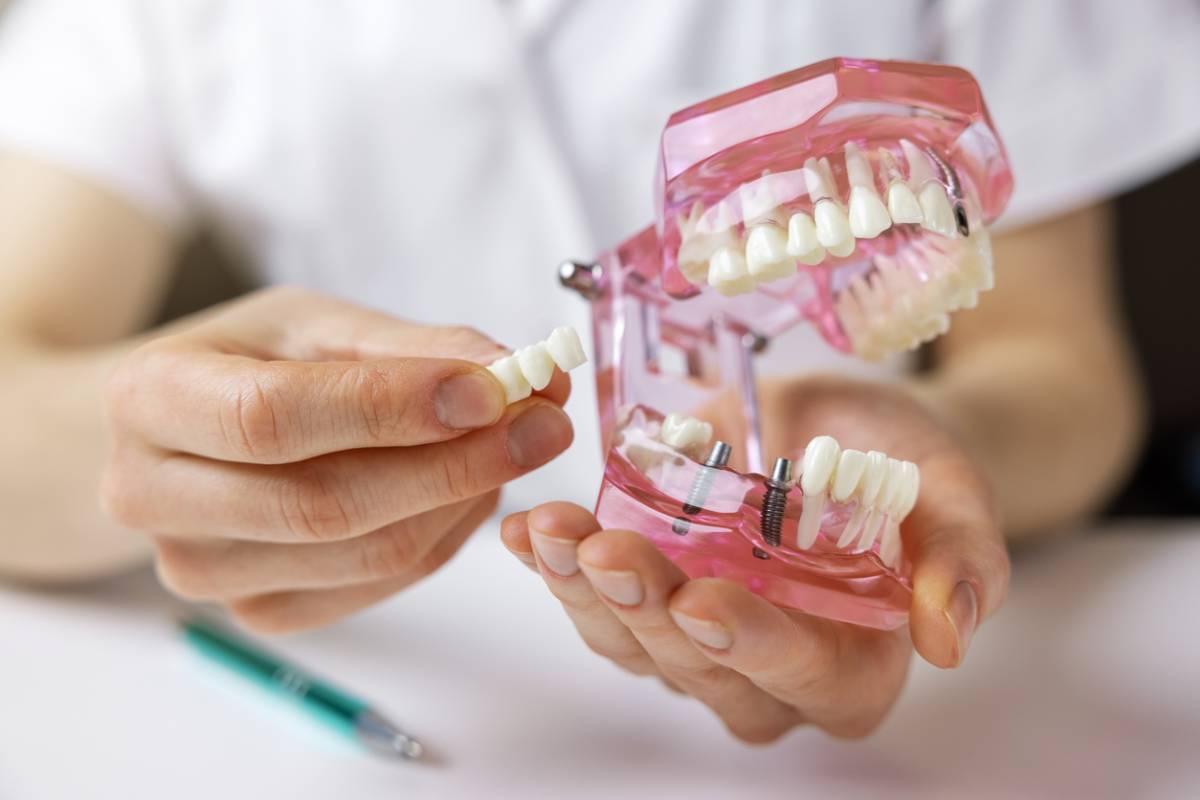A dental bridge is a type of dental restoration that typically uses natural teeth (or, in some cases, dental implants) for support and literally bridges above the gap where one or several teeth used to be. Bridges are effective at restoring the appearance of your smile and the chewing function. But how long does a dental bridge last? Please read this article to learn the answer to this question and the tips on how to care for your bridge.
How Long Does a Dental Bridge Last?
Let’s examine various factors that can influence the lifespan of your dental bridge.
Materials
One of the determining factors in the longevity of your dental bridge is the material it is made of. For example, bridges made of resin composite can last for approximately 5 to 7 years. Other materials can typically provide more durability:
- Porcelain bridges tend to last for around 10 years or more.
- Porcelain-fused-to-metal bridges can last for up to 15 years.
- Zirconia bridges can last for 10 to 20 years, depending on the level of care and oral health conditions.
Type of Bridge Attachment
Another factor that can impact the longevity of your dental bridge is the method of attachment in the mouth. Thus, bridges that rest on natural teeth may need to be replaced sooner than those that are supported by dental implants. Additionally, the type of attachment used for the bridge to your natural teeth can affect its lifespan. Bridges that use teeth on both sides of the gap for support (traditional bridges) might last longer compared to bridges that rest on just one tooth (cantilever ridges) or resin-bonded bridges.
Oral Health
The health of the natural teeth the bridge uses for support, or the health of the gums and the stability of dental implants for implant-supported bridges can largely determine how long your bridge will serve you. Thus, the efficiency of your oral hygiene routine and general oral health care are crucial factors in your dental bridge lifespan.
Lifestyle
Other factors that influence the longevity of your bridge include your dietary habits, the frequency of your dental visits, and the presence of habits such as smoking or conditions like bruxism.
How to Care for Your Dental Bridge to Have It Last Longer
Maintain a Thorough Oral Hygiene Routine
As we mentioned before, the health of your natural teeth that support the bridge plays a vital role in its longevity. If the bridge is supported by implants, the implants and the surrounding gums also require special care. Follow these rules to maintain your oral health and the integrity of your dental bridge:
- Brush your teeth thoroughly twice a day for at least two full minutes using a fluoride toothpaste. Fluoride helps strengthen enamel and fight the bacteria that can cause gum disease and tooth decay, supporting the bridge.
- There is a small gap between the bridge and the gum, which is necessary for the health of your gums. On the other hand, food debris, plaque, and bacteria can become trapped there, causing irritation and, if left unremoved, eventually leading to gum disease. Thus, it is crucial to floss under the bridge daily. You can use special floss threaders or a water flosser to make the process easier.
- Schedule bi-yearly visits to your dentist for professional cleanings to further boost the effectiveness of your oral care.
Be Mindful of What You Eat
To avoid breaking, scratching, or dislodging the bridge, we recommend avoiding the following foods:
- Hard or crunchy foods, such as popcorn kernels, raw carrots, hard apples, crackers, and ice.
- Sticky foods like caramel, chewing gum, and toffee
Protect Your Dental Bridge from Physical Damage
- Avoid such habits as chewing on pens, opening packages with your teeth, or biting your nails. These habits can damage even your natural teeth, let alone your dental restoration.
- Wear a mouthguard if you play contact or extreme sports to protect your bridge, natural teeth, and jawbone in case of facial trauma.
- If you wake up with jaw tension or headaches, it may indicate bruxism, an involuntary condition characterized by nighttime teeth grinding. Since the force of our bite is powerful, regular teeth grinding can easily damage the bridge. Wear a mouthguard at night and ask your dentist about bruxism treatment options.
Get Long-lasting Dental Bridges at Dental Care of Pomona
If you need a new dental restoration or services to support the existing dental bridge, do not hesitate to make an appointment with an experienced dentist at Dental Care of Pomona today.


